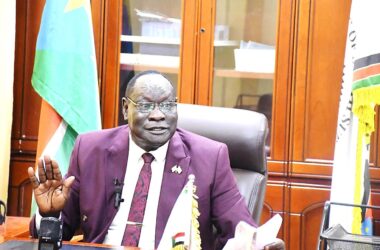By Lodu William Odiya
President Kiir calls for coordination, Transparency among the government officials amidst the economic situation.
According to a statement issued by the presidential press unit, Kiir’s call followed a high-level meeting with members of the Economic Cluster to discuss the current economic situation of the country.
“The meeting’s primary focus was on the effective coordination and enhancement of transparency in the liquidity, public financial management, and initiatives designed to strengthen liquidity control and stabilise the foreign exchange market while preserving the value of the local currency” the statement partly read.
The statement underscored Finance Minister Athian Diing Athian stated that the meeting addressed macroeconomic stability and physical coordination and provided an update to the President on the ongoing engagements between the Ministry of Finance and the Bank of South Sudan in areas of fiscal and monetary policies.
It further emphasized that the Minister also said the meeting warned people against hoarding the local currency.
“This is prohibited by law, urging law enforcement agencies to play a role in curbing such activities that affects the flow of cash in the system” the statement read.
Additionally, the statement underlined that Minister Diing underlined that they are working on procedures to stabilise the economy by introducing initiatives aimed at restoring people’s trust in the banking institutions.
The statement highlighted that he announced they had completed the payment of civil servants and that the armed forces and those in distant areas will receive their salaries in cash.
South Sudan, the world’s youngest nation, is in the throes of an economic meltdown in 2025. A cascading crisis has unfolded from a perfect storm of internal fragility and external shocks.
The landlocked country’s oil-dependent economy has been shaken by conflict-related disruptions that choked off its main income stream.
As oil production stalled and exports halted, government revenues evaporated, setting off a chain reaction of fiscal distress, currency collapse, and humanitarian desperation.
Inflation has surged to catastrophic levels, salaries go unpaid, and basic goods are increasingly out of reach for ordinary South Sudanese.
The crisis not only threatens the stability of this fledgling nation but is also sending shockwaves across the region, affecting trade and economic conditions in neighbouring countries.



